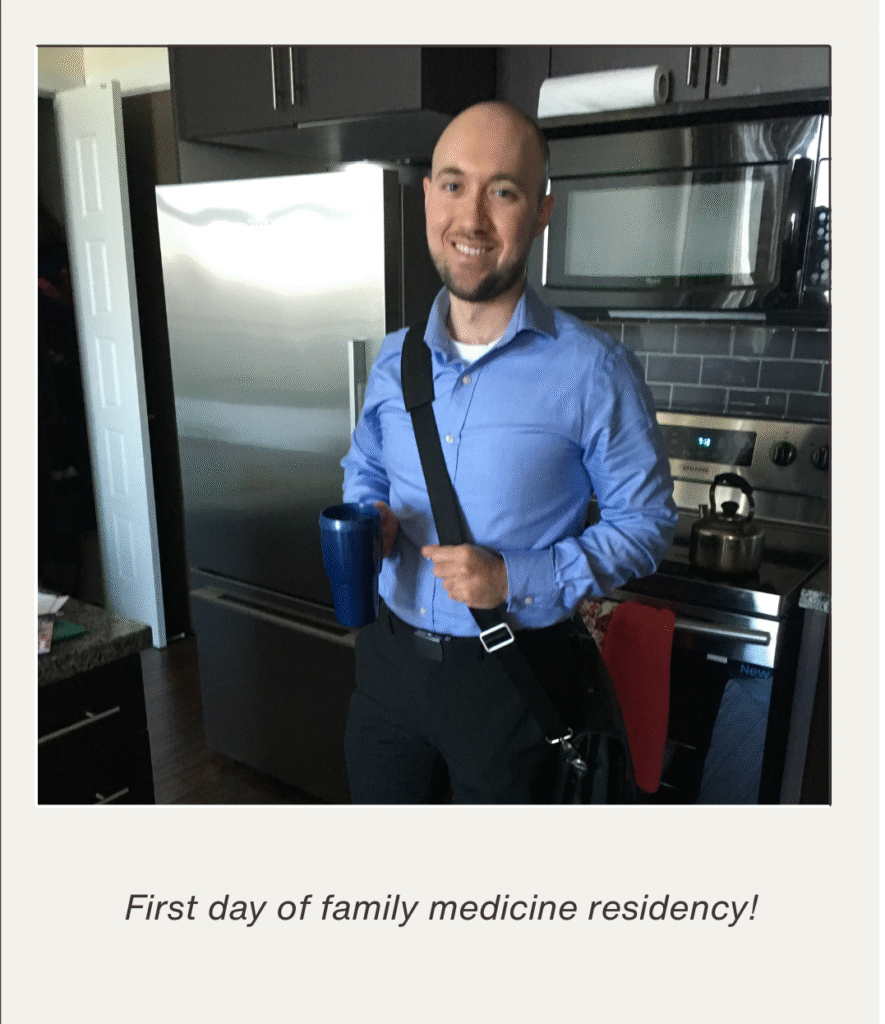
I still remember AJ in residency—back when TikTok didn’t exist, the EMRs were more or less the same, and somehow, we all had a little more hope.
AJ (Pippen AI’s co-founder) is the kind of person who made you believe family medicine could be a calling, not just a career. I still remember AJ ranking for CaRMS—bright-eyed, idealistic, talking about family medicine like it was the most natural and noble thing a person could do. He wanted to serve a community, follow patients through every stage of life, maybe even work in a rural town where they’d know everyone by name.
But it’s becoming an outlook that’s becoming increasingly rare.
In Canada right now, family medicine is in trouble. Or, more precisely, our systems are. The number of unfilled FM residency positions is the highest it’s ever been—268 in 2023, 252 in 2024. It’s like watching your local bakery close down while the city builds another artisanal donut bar beside the cardiology clinic. Something’s off, and it’s not just the sugar.
So I read the recent piece in Canadian Family Physician—“Top influences and concerns of residents selecting a career in family medicine” by Nutik et al.—with a kind of desperate optimism. It asks: who, in the middle of this slow-motion collapse, is still choosing to become a family doctor? And why?
What They Found: Four Reasons That Are, Honestly, Kind of Beautiful
These are people who just entered family medicine. New residents. Still full of intention. And when asked why they chose FM, their answers weren’t about prestige or prestige-adjacent things. They were, well… human.
1. Flexibility
Not the work-from-Bali-for-six-months kind (though, honestly, not entirely off the table). This was about shaping a life: picking your community, adjusting your hours, stretching your scope. A career that bends instead of breaks.
2. Relationships
That old-school kind of medicine: where you know your patients, and they know you. Where you deliver a baby, then care for their aging parent, and years later, that child walks into your clinic as a young adult, still remembering your face. The kind of care that stretches across lifetimes, not just appointments.
3. Good experiences in FM during med school
It turns out that when students have meaningful early exposure to family medicine—and it’s presented as a valuable and integral part of medical training—they’re more likely to choose it.
4. Role models
This one is heartbreakingly simple: they saw someone doing family medicine and thought, I want to be like that. Someone calm in the chaos. Someone whole. Someone who seemed to love their job.
But Then, The Concerns
Of course, it’s not all warm feelings and good vibes. Most residents also reported something darker: that they feel the world doesn’t really value what they’ve chosen. Not the government, not the public, sometimes not even their own institutions.
They’re also worried about being overwhelmed—by uncertainty, by complexity, by the kind of everything-all-at-once problems that show up in a family practice waiting room every day.
And these aren’t imaginary fears. They’re structural.
So… What Now?
The piece ends with a set of recommendations. Some of them are education-based: more early exposure to FM, better mentors, longitudinal rotations that don’t feel like a sidebar to the “real” curriculum. Others are systemic: treating family doctors as the specialists they are, investing in primary care, not letting politicians treat the shortage as an abstract thing to fix later.
But as someone building tools to actually support family doctors—tools that reduce the hours spent drowning in documentation so they can return to the part they love (you know, the doctoring)—this piece felt like a permission slip. A call. Maybe even a spark.
Because here’s what I see when I read this study:
A profession defined not by prestige, but by proximity.
Not by hierarchy, but by humanity.
Not by control, but by complexity—and the grace required to manage it.
And if that’s the version of medicine we want more of—and I think we do—then we have to do more than just applaud the people who still choose it.
We have to make it viable. Sustainable. Delightful, even.
That’s what we’re building at Pippen AI. Not a fix-all. But a tool that says: your work matters. Your time matters. Let’s get you back to what matters most.
–Mary Aglipay, Co-Founder, Pippen AI

